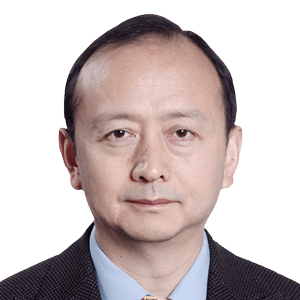China and India should be Global South anchors, not power competitors
Much has been said about how China and India are jostling for leadership of the Global South. This is bunkum. China harbours no intention of becoming the Global South leader, and India is unlikely to become one even if it wants to.
China describes itself only as “a natural member of the Global South”, in line with what it calls itself: a developing country. But while India has not yet declared itself the leader of the Global South, its ambition is hardly veiled.
Last year, with New Delhi hosting the G20 summit, Prime Minister Narendra Modi convened two Voice of Global South Summits for 125 developing countries without inviting China, Brazil or South Africa. This is almost understandable: India could hardly puff up with self-importance as the voice of the Global South in the presence of these leading G20 developing nations.
China and India have the same problem in trying to convince others to see them as they see themselves. As China gets stronger, despite the late Deng Xiaoping’s mantra of tao guang yang hui, meaning to hide your strength, bide your time, it can hardly hide its strength any more.
For example, China has said it will remain a developing country forever. There is indeed no strictly agreed definition for a developing or developed country. But if China overtakes the United States in 10 years to become the world’s largest economy, could it then still be a developing country? Some are already calling China a superpower.
For India, the challenge is to encourage a belief that it is bigger than it actually is. With liberal democracy in steady decline, India’s self-description as the world’s largest democracy adds little dazzle. Besides, there are doubts that India is a full democracy and many consider Modi’s government repressive.
India’s latest self-branding is “Vishwaguru”, or world teacher. The question is what India can teach the world. While India has outpaced China in economic growth over the last few years, China’s economy remains five times as large. Even if India could sustain an average annual growth of about 5 per cent, its gross domestic product will still only be where China’s is today in around 2050.
China, which spent four decades lifting 800 million of its people out of poverty, is more qualified to share its lessons learned with other developing countries. In diplomacy, India has yet to set a better example than Beijing’s successful mediation between Saudi Arabia and Iran.
The war in Gaza is showing up India’s difficulties in trying to assume the leadership of the Global South. On October 7, Modi wrote on X: “We stand in solidarity with Israel at this difficult hour” before US President Joe Biden tweeted his support for Israel. India’s backing of Israel, one of its biggest weapon suppliers, is probably a reflection of its realpolitik.
But most Global South countries, including China, are more sympathetic to the Palestinians. South Africa, in particular, has launched a case in the International Court of Justice accusing Israel of “genocidal acts” in Gaza.
Perhaps the best narrative India has found for itself is in being a bridge between the Global North and South; this at least carries a grain of modesty. According to Modi, India can serve as a bridge “so that linkages between the North and South can become stronger and the Global South can itself become stronger”.
But in a globalised world, why would any Global South country need to reach the Global North through an Indian bridge? The only thing that looks somewhat like a bridge is the India-Middle East-Europe Economic Corridor (IMEC) in which India has a key role. But this is a US-led project. And it will probably never come to fruition due to the Gaza conflict, which threatens to spread across the region.
Modi’s government is at best pragmatic and at worst opportunistic. India is drawing closer to the US. With China-US competition intensifying, Washington naturally needs New Delhi, in groupings such as the Quadrilateral Security Dialogue, just as it needed Beijing during the Cold War to counterbalance Moscow.
The question is what price India is ready to pay. New Delhi has maintained good relations with Moscow since the Cold War and, for a long time, will continue to depend on Russian oil, gas and spare parts for the Russian weapons that make up the bulk of what’s used in its military. But this relationship will cool as India warms up to the US. The challenge is in how India can step back gradually from Russia.
The more difficult relationship is with China, India’s largest direct neighbour. Their disputed border areas have led to many military stand-offs, including a deadly clash in 2020. In the Indian Ocean, where India considers itself a “net security provider”, it frets about China’s increased economic and military presence.
India repeatedly objected to Sri Lanka allowing Chinese military vessels to dock to replenish supplies, forcing the government to introduce a ban on Chinese ships. China, in contrast, has welcomed India’s membership in the Shanghai Cooperation Organisation and Brics (which also includes Brazil, Russia and South Africa), two organisations in which China has a crucial role.
The future bodes well for both China and India. The Asian century that Deng Xiaoping described to Rajiv Gandhi in the late 1980s is dawning. China has grown into a pole in our multipolar world and India could one day become another. If this is to be a blessing for the Global South, both Asian giants must serve as anchors rather than competitors in our volatile world.

-1.jpg?fit=300%2C169&ssl=1)



